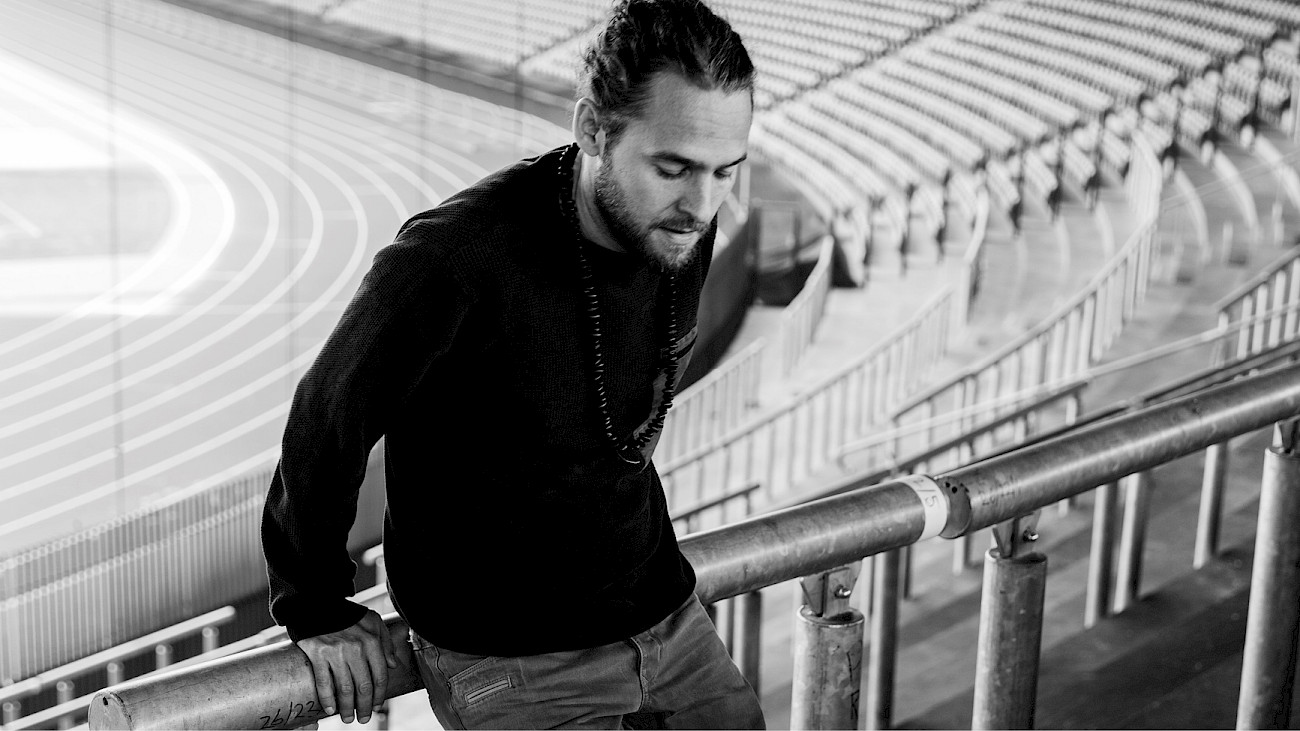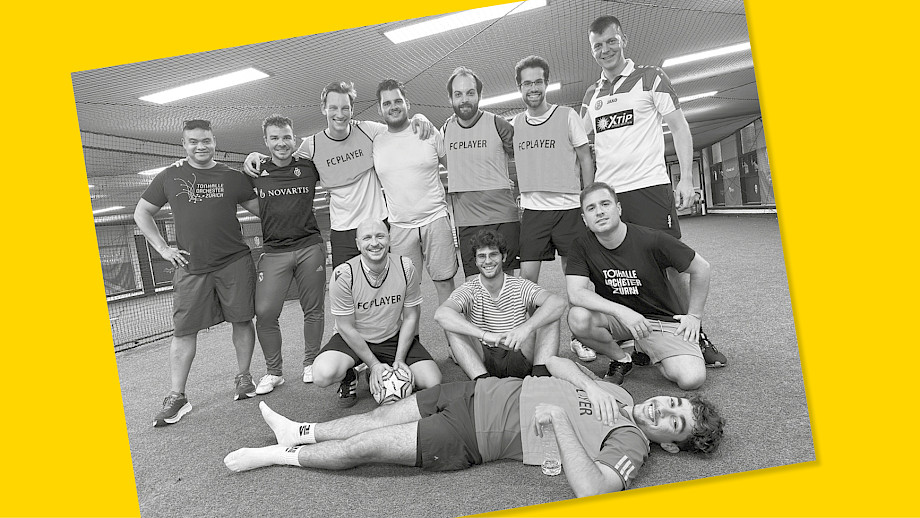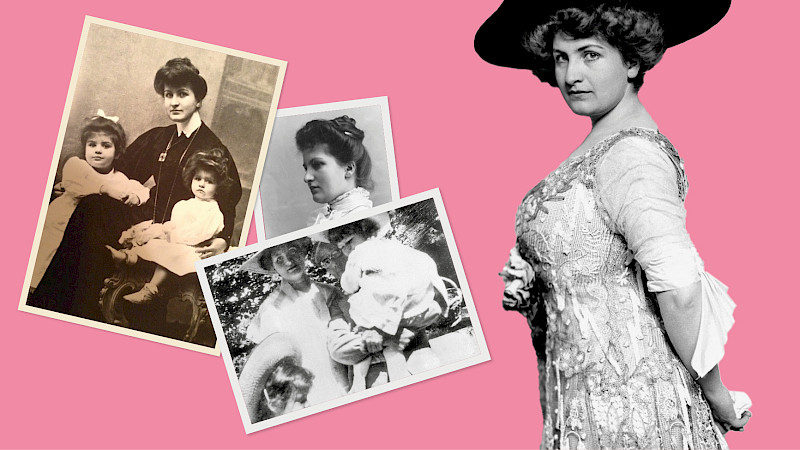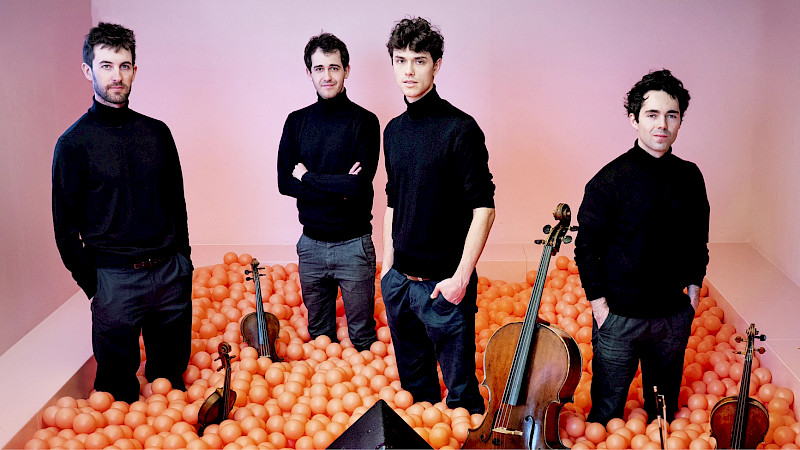
Singing in the Stands
Where do most people sing together today? No, not in the concert hall. Not even in church. But in the football stadium.
Do they sing, or don't they? In connection with the national anthems that are now blaring through the stadiums again at the European Football Championship, the question has become a political issue - at least since 1984, when the recently deceased Franz Beckenbauer ordered his men to actively participate vocally in the patriotic ritual. The louder the players (and now also female players) sing, the greater their identification with the country: this is the somewhat skewed equation that has repeatedly led to unpleasant, sometimes openly xenophobic, reckonings in Switzerland. And for moments during TV broadcasts when people prefer to switch the TV to mute.
Are they singing or not? If you apply the question to the fans in the stadium stands, the answer is far more pleasing and less complicated. Of course they sing! They haven't always done so. But it has been for so long that fan singing has developed into a musical genre in its own right, about which historical, musicological, literary, psychological, sociological and communication studies are now being written.
There are several founding myths about how it all began. One is that the sound system broke down at Liverpool's Anfield Stadium in 1963 in the middle of the musical song "You'll Never Walk Alone" in the version by Gerry and the Pacemakers, whereupon the fans jumped in and continued singing. A variation of this is the story of how the top 10 hits were always played before kick-off; when "You'll Never Walk Alone" was ousted from the hit parade, the fans sang and demanded the song's return. And then there is the story of the fog, which also took place in Liverpool four years later: This fog was reportedly so thick at a match that you couldn't see who was scoring on one side and who was scoring on the other. So the crowd shouted "Who scored the goal?" And it sounded back from the fog: "Hateley scored the goal!"
Three things are certain: firstly, since the 1960s, nowhere has singing been as heartfelt as in football stadiums - even by people who would never do it in "normal" life. Secondly, that the antiphonal principle of singing and counter-singing, which already characterised Gregorian chant, works perfectly in this setting. And thirdly, that it is by no means foreseeable what will really catch on as a fan song: The success of the rather slow and not particularly catchy "You'll Never Walk Alone", which continues to this day, is the best example of this.
Reggae meets football music
Sometimes fan hits just happen: Elia Salomon can literally sing a song about this. Born in Zurich in 1986, he is known as Elijah Salomon, a reggae musician, and was already an FCZ fan as a child. As a twelve-year-old, he watched the match between Jamaica and Argentina at the World Cup in Paris; the sampler with songs about the Jamaicans' first ever qualification for the finals was his favourite CD for a long time afterwards and a double source of inspiration: for reggae and for football music.
In 2013, both came together in a wistful moment. The FCZ fan club, "Studio Wellness", which was located in a garage in Wiedikon, was closed, and Elijah Salomon gave a concert there the night before. It wasn't a good gig, he tells us over croissants and cappuccino, "we pretty much blew the last few songs". That couldn't have been it, he thought after leaving the stage, so he returned once again, strummed the chords on his guitar that had come to him on his bike a few hours earlier and sang the line "Nie usenand gah".
The spark didn't just spread to the audience, it turned into a flame. "Everyone sang this melody in an endless loop for a quarter of an hour," says Elijah Salomon. "I kept trying out new versions of the lyrics and memorised the ones that worked" - also in keeping with the music-historically significant principle of the antiphon. The next day, FCZ played in Thun, and the entire second half was spent singing "Nie usenand gah". Since then, the song has been the official anthem of the FCZ fans; a further developed version of it provided the soundtrack for the film celebrating the club's 125th anniversary.
It is a friendly song. Nobody is mocked or insulted in it, the lyrics are completely free of fighting slogans, chauvinism, strong language and other verbal aggression. There is nothing that would correspond to the negative clichés of fan songs. Elijah Salomon says that his aim was to convey emotions, above all the sense of community that for him is part of the positive football experience and can even survive sporting slumps: "Wänns sii mues mit dir abe, nur zäme chömemer ue" ("It's up to you, it's up to us") goes the song, which was written at a time when relegation was a very realistic prospect.
"Nie usenand gah" is a friendly song. Nobody is mocked in it. It's about the sense of community that Elijah Salomon believes is part of a positive football experience.
More than bellowing and hooting
Benjamin Nyffenegger, deputy principal cellist in the Tonhalle-Orchester Zürich, is also familiar with this sense of community. He himself is an enthusiastic footballer in the village club in Hunzenschwil, and he also plays regularly with his orchestra colleagues; on their tour of Asia last autumn, they even rented seats especially for the occasion, "there's nothing better to combat jet lag than playing football". As a loyal FC Basel fan, he is also often out and about in the stadiums. However, he doesn't sit in the supporters' section and he doesn't sing either, "or at most when my son is there". But it wouldn't be the same for him without the fan chants: "Football is a quiet game, so something has to happen acoustically in the crowd."
What happens may not exactly be bel canto, but it is far more than bellowing and jeering. Studies have shown that the songs are always sung at the same pitch, with very slight fluctuations - as if the stadiums had absolute pitch. In fact, the pitch is crucial, says Elijah Salomon: "For a while, 'Nie usenand gah' was sung at a lower pitch, and the power was immediately gone."
That the power of fan chants sometimes turns into violence: Salomon thinks absolutely nothing of this - and not just because he now attends matches with his children and has moved from the curve to the stands. Nor does he agree with the complaint that the atmosphere in the stadiums has become stiffer due to the now very strict entrance controls: "Security is key. And in Switzerland in particular, the musical fan culture is still vibrant despite the measures."
Benjamin Nyffenegger also appreciates the creative energy of the scene. He can do just as little with dull battle cries as Elijah Salomon, "I like the funny lyrics". As an example, he cites the British humour that was once used to poke fun at Zlatan Ibrahimović: "His name is Zlatan, his nose is offside". In Switzerland, too, irony can be heard from the curves time and again. The best example of this can probably be found in FCZ history, in a rap song by Radio 200,000: "D'Kurve chläbt, d'Kurve chläbt, will de Präsi wieder mal es Bier usgleert hät. D'Kurve chläbt, d'Kurve chläbt, but de Friisi scho bringt scho wieder es neus." The fact that everyone undoubtedly knew who Friisi was back then is also part of fan culture, which revolves around those legendary personalities who have been a fixture at stadiums for decades.
New life for old songs
These stadium celebrities also include those who ensure that the curve not only sticks and lives, but also sounds. There are the capos, the pre-singers, who stand in front of the curve with their backs to the game in remarkable self-sacrifice and set the tone. And there are the drummers, who are responsible for the rhythmic basis. Many of them are real musical talents, says Elijah Salomon: "Some have acquired their skills in the stadium, but there are quite a few who also make music outside the stadium."
Above all, however, they know music: this is also shown by the fan chants, which mostly cover songs from completely different contexts. The Beatles hit "Yellow Submarine" has the lyrics "Zieht den Bayern die Lederhosen aus". Go West" - written by the Village People, inspired by the harmonies in Pachelbel's famous canon, made into a hit by the Pet Shop Boys - became "Stand up if you're from Basel" (or Bern, or Schalke). The guitar riff from "Seven Nation Army", which the White Stripes played over Bruckner's Symphony No. 5, has taken on a life of its own in stadiums around the world. And "Nie usenand gah" is also a cover: the original with the title "'O Sarracino" was sung by Renato Carosone in the 1950s; Elijah Salomon listened to it as a child with his Italian grandfather, "thanks to him I discovered the old Italian pop songs and canzoni napoletane".
In other words, when it comes to copyright, football songs would be a tough subject to get your teeth into. Who should pay the licence fees for tunes that are still subject to royalties? Should the lyricists receive royalties? And what does it mean when famous claims are embroidered on hoodies?
A text message from the goalie
The case is clear only for those songs that are not created by chance, but are specially composed and produced. There are all the World Cup and European Championship anthems that have long been forgotten; apart from "Un'estate italiana" by Gianna Nannini and Edoardo Bennato, hardly any of them have passed the stadium suitability test. Football songs have also been written in Switzerland time and again, although the most beautiful ones are not really suitable for pushing a club to victory: Just think of the wonderfully dreary "Hüt hei sie wieder mau gwunne" by self-confessed YB fans Züri West.
But do fan chants have any effect on the game? Do the players listen to the songs? Yes, says Elijah Salomon, who received a text message from the then FCZ goalie David Da Costa the day after the Thun game asking what was being sung. Yes, says Benjamin Nyffenegger: "Especially towards the end of a game, when there's still something in it, singing can perhaps release a few reserves of energy." He compares it to applause at a concert: "If it's enthusiastic, it carries over to the orchestra." Musicologist Reinhard Kopiez, who has written a "fanomenology" of football fan chants, is more sceptical: "Vocal support can certainly help during endurance runs," he once told the "Süddeutsche Zeitung", "but when players have to recognise complicated situations, the singing can disturb them".
The extent to which singing fans can inspire or distract their team depends not only on their vocal reserves, but also on the stadiums. Which has the best acoustics? For FCZ fan Elijah Salomon, it is "certainly not the Letzigrund". The track around the pitch, the wood in the roof, the open structure - "all of this ensures that you have to do a lot to hear anything". Compact, steep concrete and metal stadiums are far more favourable: "It sounds good in St. Gallen, in Geneva too, maybe even in Lucerne," he says, and then remembers a concert with his band in the long-demolished Hardturm Stadium with some nostalgia: "That was probably the best acoustics we've ever played in."
Dmitri Shostakovich, referee
Cellist Benjamin Nyffenegger would also add Basel's St. Jakob-Park to the list of good stadiums, "all the more so since they removed the mufflers installed above the fan curve a few years ago. Now it's really loud again". In his memory, the old Joggeli, where he experienced FC Basel's promotion match in 1994 as a child, with over 50,000 people, was even better: "That was absolutely insane."
Just one question remains: does this madness spill over in some way from the stadium into the concert halls? It could, says Nyffenegger, recalling Dmitri Shostakovich, probably the most passionate football fan among the great composers. Shostakovich was a loyal supporter of the club, which is now called Zenit St. Petersburg, maintained close contact with the players, whom he sometimes invited to his home, and even trained as a referee; however, he only blew the whistle in the lowest leagues. Whether his stadium experiences had anything to do with the fact that he was able to charge, channel and explode the masses of sound in his works so effectively - that would have to be clarified in a further study.
But it doesn't really matter. Stadiums, concert halls and music clubs are worlds of their own with their own sounds; some love them all, others are only at home in one place. But even the latter can experience a lot when travelling to foreign climes. Pachelbel, Bruckner & Co. would undoubtedly have further good material to offer for curve composers. And Benjamin Nyffenegger would love to take his orchestra colleagues to the stadium: "I'm sure that would trigger something."
FC Tonhalle-Orchester
Nothing helps better against jet lag than playing football, says deputy principal cellist Benjamin Nyffenegger. On the Asian tour last autumn, he and some like-minded musicians therefore occasionally rented indoor spaces. Incidentally, the Tonhalle Zurich also occasionally becomes a gymnasium: if you come to the vestibule during the day, you might experience a table tennis tournament of a very respectable standard.
Translated with DeepL.com






